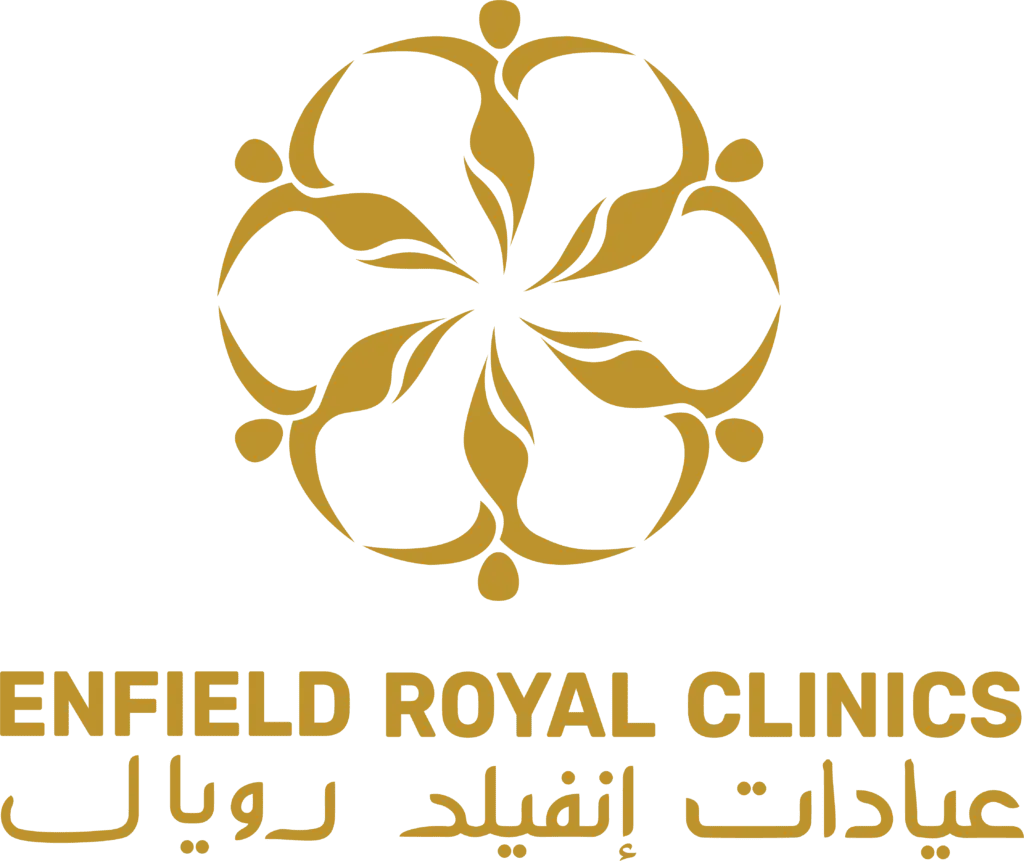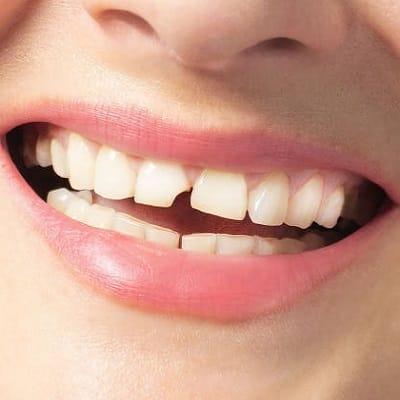A broken tooth shatters confidence and prevents you from smiling, so it is regarded as anything less than a form of trauma. A cavity or tooth injury is one of the most common causes why teeth breaking, along with eating hard foods like sweets or ice cubes and falling.
The positive aspect is that thanks to the application of cutting-edge technology, modern dentistry can solve the majority of dental issues. Worldwide dental services are available to anyone in need of emergency dental care. All a patient needs to do is visit a dentist immediately if they have a damaged or cracked tooth. The dentist will counsel them regarding the most effective way to address the condition.
Why Teeth Fractured or Break in Individuals
Even though the enamel covering your teeth is the toughest tissue in your body, cracks and breaks can still occur. There are numerous methods to harm teeth. You may be engaging in activities you should not have, like biting on a pencil or playing football without a mouthguard. Alternatively, there could have been a severe fall, collision, or impact.
The American Dental Association lists hard candies, ice, citrus, coffee, dried fruit, potato chips, soda, alcohol, and sports drinks as the top foods that harm teeth. Additionally, cavities and tooth decay can weaken teeth, increasing the likelihood of shattering when biting hard food.
Kinds of Teeth Fractures
There are various kinds of broken teeth.
- Craze Lines: These microscopic fissures solely impact the enamel’s outside. Adults are prone to craze lines. They are superficial, painless, and unimportant, save in appearance.
- Broken Edge: A fractured cusp occurs when a fragment of the tooth’s chewing surface breaks off. Usually, it does not hurt all that much.
- Cracked Teeth: A tooth with a crack indicates that the crack runs vertically from the chewing surface to the root. In this instance, early detection is crucial to saving the tooth. If you ignore a cracked tooth, it will only become worse over time and may eventually fall out. To save cracked teeth, early intervention is necessary.
- Split Tooth: Usually, a long-term fractured tooth leads to a split tooth. A crack with independent, segmented parts serves as its distinguishing feature. It is impossible to save a split tooth whole.
- Vertical Root Fracture: These fractures start at the tooth’s root and move toward the chewing surface. They frequently exhibit little symptoms and indicators. They are frequently found when the gum and bone around them get contaminated.
Causes of Fractured Teeth
There are several reasons a tooth can break, including:
- Trauma: Broken teeth can result from falls, accidents, and sports-related injuries. These fractures can vary in severity from little chips to large fractures.
- Dental Decay: Untreated cavities can erode tooth structure and increase fracture risk.
- Grinding Your Teeth: Overly forceful teeth grinding, or bruxism, might eventually cause fractures or fissures.
- Aging: Wear and strain from aging teeth may make them more prone to fractures.
- Weakened Enamel: Acidic meals, drinks, or medical conditions can erode teeth’s enamel, making them more vulnerable to fractures.
Typical Signs of Fractured Teeth
A variety of symptoms may be present with fractured teeth, such as
- Pain: Continuous or sporadic dental pain, particularly during chewing or eating hot or cold food.
- Sensitivity: Increased susceptibility to pressure, sweet foods, and temperature fluctuations.
- Visible Damage: This refers to visible fractures, chips, or fissures in the teeth that occasionally the tongue may feel or see.
- Inflammation or Swelling: Reddish-purple gums around the broken tooth.
- Difficulties Chewing: The instability of the cracked tooth causes discomfort or difficulties during chewing.
Fractured Teeth Treatment
The location and severity of a tooth fracture determine the course of treatment. Your dentist will assess your situation and suggest the best course of action. Here are a few typical approaches for fractured teeth treatment:
Dental Adhesion:
- Dental bonding is the best treatment for small chips and fractures.
- It entails filling the damaged area with a tooth-colored resin and molding it to resemble the original tooth.
- A quick, inexpensive, and least invasive approach is bonding.
Veneers For Teeth:
- Dental veneers are extremely thin composite or porcelain shells.
- Specifically designed to protect the tooth’s shattered front surface.
- When it comes to improving the beauty of your teeth and your smile, veneers are a great option.
Crowns For Teeth:
- When the tooth structure is compromised, or there are more widespread fractures, dental crowns, also known as caps, are applied.
- A crown strengthens, protects, and enhances the appearance of the damaged tooth by encasing it.
- Materials for crowns can include metal, porcelain, or a combination of the two.
Dental Sealants:
- Root canal therapy could be required if a fracture reaches the pulp of the tooth, which is its interior portion.
- This process entails extracting the injured pulp, sanitizing, and closing the root canal to stop infection.
- It is common practice to install a crown on the tooth to strengthen and preserve it following a root canal.
Extracting Teeth:
- It could be required to pull a tooth if it has severe fractures that are not treatable or is beyond repair.
- After tooth extraction, a few options for tooth replacement, such as dental implants, bridges, or removable dentures, are considered.
Implants for Teeth:
- A common solution for restoring a missing tooth from extraction or serious fractures is dental implants.
- They offer a durable and robust alternative that resembles the appearance and capabilities of a real tooth.
- Treatment with Orthodontics:
- In certain situations, it could be advised to undergo orthodontic treatment to address biting problems that exacerbate the fracture and stop more harm.
Aftercare for Fractured Teeth Treatments
To avoid more problems, it is critical to continue practicing good dental hygiene after receiving treatment for shattered teeth. Observe these after-treatment recommendations:
- Frequent Dental Check-ups: Make an appointment for frequent dental check-ups to guarantee that your oral health and the treated tooth stay in good shape.
- Oral Hygiene: Teeth brushing prevents gum disease and tooth decay.
- Mouthguards: Consider wearing a custom-fitted mouthguard to shield your teeth from further harm if you grind or clench your teeth frequently.
- Dietary Adjustments: Reduce your intake of acidic foods and beverages, which can erode your tooth enamel.
- Avoid Chewing on Hard Objects: To prevent possible fractures, avoid chewing on hard objects like ice, pencils, or popcorn kernels.
- Chewing Properly: To minimize stress on individual teeth, uniformly distribute pressure while chewing.
The Value of Seeking Early Treatment
Timely treatment of broken teeth is essential. Untreated fractured teeth can result in more serious problems, such as infection, further damage, and tooth loss. Not only can prompt treatment maintain your dental health, but it also increases your chances of a better outcome.
When you feel that your teeth are fractured, you must go to an expert dentist for a professional and earlier treatment. We at Enfield Royal Clinic Islamabad have the best treatment for your fractured teeth. Our expert is ready to serve you with the latest technology and innovative solutions in dental surgery. We provide personalized treatment plans depending on your particular needs.
FAQs
Is dental bonding a long-term fix for fractured teeth?
For small fractures, dental bonding is a less invasive procedure that can work well. But over time, because the bonding material might wear out or chip, it might need maintenance or replacement. With the right maintenance, it can last several years, even if it is not considered a permanent solution.
How long does it take to heal from dental veneers or crowns for broken teeth?
The healing period following veneer or crown dental work is usually rather short. After the operation, patients are typically able to return to their regular activities right away. In the days after the treatment, there can be some sensitivity or adjustment required, but this normally goes away quickly.
For teeth that are badly shattered, are there any options except extraction?
When teeth with serious fractures are not amenable to conservative treatment, tooth extraction may become essential. However, after an extraction, there are tooth replacement options like dental implants, bridges, or removable dentures that can help you keep your smile and your oral health intact. To decide which option is best for your particular case, you and your dentist must explore these possibilities.
Is it possible to avoid fractures caused by teeth grinding?
It is frequently advised to use a nightguard or mouthguard that is specially fitted to prevent fractures brought on by bruxism or tooth grinding. These devices serve as a barrier between the lower and upper teeth, reducing the negative consequences of grinding and protecting the teeth from further damage.
Conclusion
Broken teeth can be resolved properly, requiring a professional dental examination and consultation with a certified dentist. Prompt action can reduce discomfort, prevent further issues, and restore a healthy smile. Consult a dentist for treatment options.



